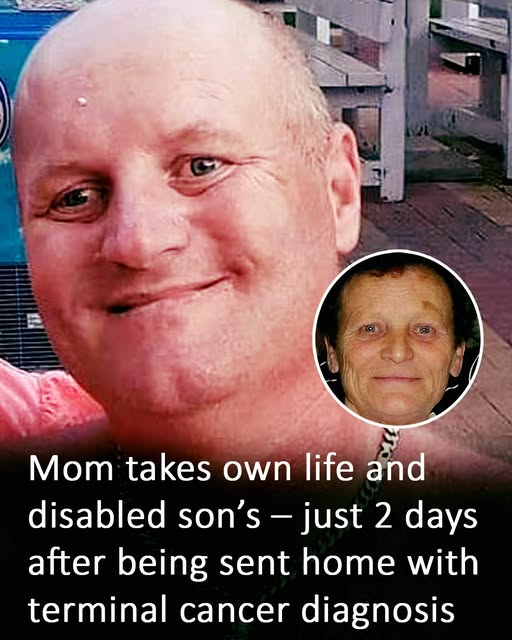The tragic deaths of 67-year-old Shirley Nunn and her 50-year-old son Steven in October 2021 have sparked an important conversation about the challenges faced by full-time caregivers and the lack of adequate support systems for families in need. Shirley, who had been a dedicated caregiver for Steven since he was severely injured in an accident at the age of 11, passed away alongside her son under heartbreaking circumstances. The Domestic Homicide Review that followed revealed critical failures in the system that left Shirley emotionally and physically vulnerable during the final months of her life, contributing to an outcome that could have been prevented with better care and attention.
A Lifelong Caregiver Facing Terminal Illness
Shirley Nunn had been a full-time caregiver for her son Steven for decades, ever since his tragic accident left him in a coma with severe brain damage. Despite his recovery, Steven was left with cerebral palsy, epilepsy, and significant learning difficulties, making him unable to live independently. Shirley became his sole caregiver after her husband Paul’s death from cancer, and she was his main support system, aided by adult social care that had been involved in Steven’s care since 2005.
In 2021, Shirley received a devastating diagnosis: stage three lung cancer. As her illness progressed, she was given a terminal diagnosis when the cancer spread to her brain, spine, and pelvis. Despite her own declining health, Shirley remained focused on her son’s well-being and wanted to ensure that he would be well cared for after her passing. However, the stress and emotional toll of managing both her cancer and Steven’s needs led to a severe decline in her own mental health.
Struggling with Mental Health and Lack of Support
As Shirley’s health deteriorated, she struggled with depression and even had thoughts of taking her own life. According to the Domestic Homicide Review, Shirley was so focused on her son’s future that she worried more about how he would cope without her than about her own worsening condition. The report highlights how Shirley’s mental health, particularly her emotional struggles, were not prioritized by the professionals involved in her care, despite the severity of her illness.
In October 2021, Shirley was hospitalized again, and it was noted that palliative care arrangements were being made for her to pass away at home. Two days after her discharge, her sister called the police to the Nunn home, where both Shirley and Steven were found dead. It was exactly two years to the day that her husband, Paul, had passed away from cancer.
The System’s Failure and Missed Opportunities
The investigation into their deaths revealed missed opportunities to provide the necessary support for Shirley, particularly in the weeks leading up to her tragic passing. The review concluded that Shirley’s mental health should have been given as much attention as her physical health. Professionals failed to recognize the urgency of Shirley’s emotional and psychological struggles, which may have prevented this heartbreaking outcome.
“[Ms. Nunn] had cared for and loved her son throughout his life and without question had always prioritized his needs,” the report stated. “We can only assume she felt there was no other option or alternative for [Steven’s] ongoing care and support needs and took what must have been the very difficult decision which resulted in their deaths.”
This heart-wrenching story brings to light the severe consequences that can arise when caregivers are left without adequate mental health support, particularly when they are tasked with caring for a loved one with significant physical and emotional needs. Shirley Nunn’s tragedy raises uncomfortable but crucial questions about the care systems in place for families facing such immense challenges.
The Need for Comprehensive Care and Support Systems
Shirley Nunn’s decision to prioritize her son’s needs above her own, even in the face of her terminal illness, highlights the profound dedication of caregivers but also the immense burden they carry. The failure of the system to address her mental health needs in tandem with her physical condition is a stark reminder of the importance of providing caregivers with the necessary emotional and psychological support.
The question remains: how much responsibility do we, as a society, bear in ensuring that caregivers like Shirley don’t feel like they have no other option? Should the healthcare and social care systems be doing more to support families in crisis, offering resources that address both the physical and mental health challenges faced by caregivers?
A Call to Action for Better Caregiver Support
Shirley’s tragic story should serve as a wake-up call for the need for comprehensive support systems that prioritize the well-being of caregivers, just as much as those they care for. There must be greater awareness of the mental and emotional toll caregiving can take, and more resources should be allocated to help individuals like Shirley, who devote their lives to caring for loved ones.
In the wake of this tragedy, we must ask ourselves if we could have done more to ensure that Shirley and her son Steven received the care and support they desperately needed. Could this tragedy have been prevented with the right care, or is there more we can do to help families in need?
As we reflect on this heartbreaking loss, let’s consider how we, as a society, can do better to ensure that caregivers are not left to bear such overwhelming burdens alone.
This article sheds light on the heartbreaking story of Shirley Nunn and her son Steven, highlighting the failures of the care system that contributed to their tragic deaths. It calls for greater attention to the emotional and psychological support needed for caregivers and the importance of ensuring that no family feels abandoned in their time of need.


